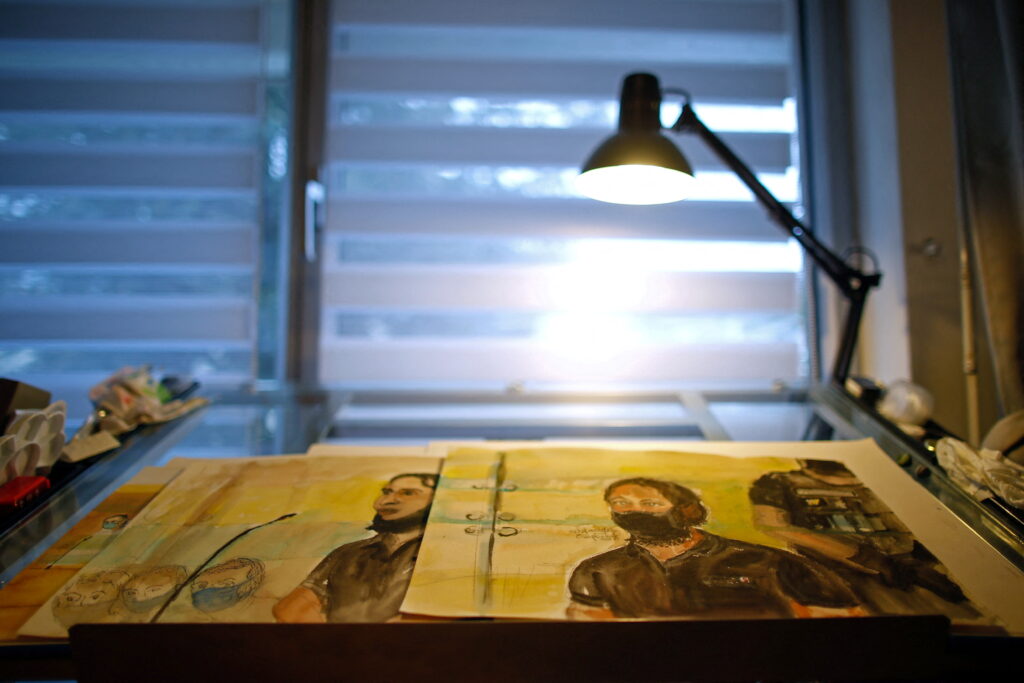168
Salah Abdeslam, a self-avowed Islamic State combatant, told a court on Wednesday that he had backed out of detonating his explosive vest during the jihadist rampage across Paris in November 2015 that killed 130 people.
A French national of Moroccan origin, Abdeslam said he had pledged allegiance to Islamic State 48 hours before the Paris attacks, the deadliest in postwar France, but that he had harmed no one.
“I experienced a situation that not many people have experienced, people who took a step back, who changed their minds,” Abdeslam, 32, told the court.
“You’re there in prison, you say to yourself, ‘I should have triggered the thing’. That’s what you think when you’re in solitary confinement.”
Investigators believe Abdeslam is the lone surviving member of the Islamist commando that carried out the synchronised gun and bomb attacks on six restaurants and bars, the Bataclan concert hall and national soccer stadium.
They allege his explosive vest failed to detonate and that hours later he fled the French capital. He was arrested in Belgium in 2016 and has been held in jail since.
Dressed in a crisp white shirt and with two armed police standing close behind him, Abdeslam told the court he was not responsible for any deaths
“I wanted to say today that I did not kill anyone and I did not hurt anyone. Not even a scratch,” Abdeslam said in a short address to the court before questioning began.
“It’s important for me to say this, because since the beginning of this case, people have not stopped slandering me.”
Among the 20 defendants, Abdeslam is the only one to be directly accused of murder, attempted murder and hostage taking.
“I WON’T HURT ANYONE”
Abdeslam told the court he had been drawn to Islamic State out of compassion for the Syrian people rather than any religious views, and said the West imposed its rules and values on others.
“For us Muslims, it’s humiliating,” he said.
Abdeslam said he had never travelled to Syria. However, he acknowledged that he admired the willingness of Islamic State militants to sacrifice themselves daily.
He was not a danger to society, he told the court.
“Islamic State’s fight is legitimate. I want to live under Sharia law. But why would that make me dangerous?,” he asked the court. “If I am released, I won’t hurt anyone. I was on the run for four months, I didn’t do anything to anyone.”
In 2018, a Belgian court convicted Abdeslam of shooting at officers while trying to evade capture.
Abdeslam’s ex-fiancee, in a written statement submitted to the court, described a man who had shown few outward signs of being devoutly religious.
Asked by a lawyer for civil parties, how he had gone from being a near non-practicing Muslim to an armed jihadist, he replied: “I am afraid of God, I am afraid of hell, I am afraid of God’s punishment.”
Abdeslam said the militant group had carried out the attacks to force then-President Francois Hollande to end France’s military forays in Iraq and Syria.
The attacks scarred the French national psyche and shaped a long-running national debate about immigration, the balance to strike between civil freedoms and security, and the place of Islam in a country that identifies as secular.
More than six years on, those same questions are prominent in the campaign ahead of April’s presidential election.
Arthur Denouveaux, who survived the Bataclan massacre, said he wanted to understand how a person reached the point where he was prepared to wear a suicide vest.
“How do you become radicalised so quickly while going unnoticed by everyone?” he said
REUTERS


